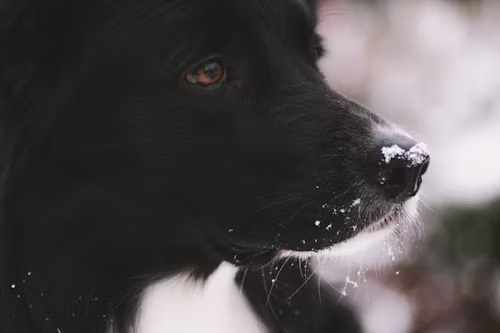Pneumonia in dogs is a serious condition that can turn life-threatening if not treated on time. While it’s crucial to consult a vet, there are ways to support your furry friend’s recovery at home. In this article, we’ll explore everything you need to know about pneumonia in dogs, including its causes, symptoms, and practical home care tips.
What Exactly is Pneumonia in Dogs?
Pneumonia is an inflammation of the lungs caused by infections, irritants, or foreign substances. It leads to the buildup of fluid or pus in the air sacs, making it hard for your dog to breathe. While it’s a treatable condition, severe cases can be fatal if ignored.
What Causes Pneumonia in Dogs?
Understanding the root cause of pneumonia is the first step toward effective treatment. Here are the most common causes:
- Bacterial Infections: Bacteria like Bordetella bronchiseptica (linked to kennel cough) can trigger pneumonia.
- Viral Infections: Viruses such as canine influenza or distemper weaken the immune system, making dogs more prone to pneumonia.
- Aspiration Pneumonia: This happens when dogs accidentally inhale food, vomit, or chemicals into their lungs.
- Fungal Infections: Fungi like Blastomyces or Histoplasma can cause fungal pneumonia, especially in dogs with weak immunity.
- Parasites: Lungworms or other parasites can irritate the lungs and lead to pneumonia.
- Environmental Factors: Exposure to smoke, dust, or toxic fumes can also trigger the condition.
Signs Your Dog Might Have Pneumonia
Early detection is key to successful treatment. Watch out for these symptoms:
- Persistent Coughing: A dry or wet cough is a common sign.
- Breathing Difficulties: Rapid, shallow, or labored breathing is a red flag.
- Nasal Discharge: Thick mucus, sometimes bloody, may come from the nose.
- Fever: A high body temperature often accompanies pneumonia.
- Lethargy: Your dog might appear excessively fatigued or lacking energy.
- Loss of Appetite: Pneumonia can make eating uncomfortable.
- Dehydration: Check for dry gums or reduced skin elasticity.
- Blue or Pale Gums: This indicates a lack of oxygen and requires immediate vet attention.
If you observe any of these symptoms, contact your vet immediately.
How to Care for a Dog with Pneumonia at Home
While veterinary treatment is essential, here are some ways to support your dog’s recovery at home:
1. Create a Calm Environment
Dogs with pneumonia need plenty of rest. Set up a quiet, warm space away from other pets and children.
2. Keep Them Hydrated
Dehydration can worsen your dog’s condition. Make sure they always have access to clean water. You can also offer vet-recommended electrolyte solutions.
3. Try Steam Therapy
Steam can help loosen mucus in the lungs. Run a hot shower and sit with your dog in the bathroom for 10-15 minutes. Be careful not to overheat them.
4. Offer Nutritious Food
Pneumonia can reduce your dog’s appetite. Provide small, regular meals of nutritious, easily digestible food. Warm, wet food may be more appealing.
5. Follow Medication Guidelines
If your vet has prescribed antibiotics or other medications, stick to the dosage and schedule strictly.
6. Monitor Their Progress
Keep a close eye on your dog’s breathing, appetite, and energy levels. Report any changes to your vet.
Lesser-Known Facts About Pneumonia in Dogs
- It Can Be Contagious: Bacterial and viral pneumonia can spread between dogs, especially in places like kennels.
- Prevention is Possible: Vaccinations for kennel cough and canine influenza can significantly reduce the risk.
- Older Dogs Are at Higher Risk: Senior dogs or those with pre-existing conditions like diabetes are more vulnerable.
- Weather Matters: Cold, damp weather can worsen respiratory issues, increasing the likelihood of pneumonia.
When to Seek Veterinary Help
Home care is not a substitute for professional treatment. If your dog shows severe symptoms like blue gums, extreme lethargy, or difficulty breathing, rush them to the vet. Hospitalization may be required for oxygen therapy, IV fluids, or intensive care.
How to Prevent Pneumonia in Dogs
Here are some preventive measures to keep your dog healthy:
- Vaccinate Regularly: Ensure your dog is up-to-date on vaccinations.
- Avoid Sick Animals: Keep your dog away from animals showing signs of respiratory illness.
- Maintain a Clean Space: Regularly clean your dog’s living area to reduce exposure to irritants.
- Feed a Balanced Diet: A nutritious diet strengthens the immune system.
- Schedule Regular Vet Visits: Early detection of health issues can prevent complications.
Final Thoughts
Pneumonia in dogs is a serious but treatable condition. With prompt veterinary care and proper home support, most dogs recover fully. By understanding the causes, symptoms, and preventive measures, you can ensure your furry friend stays healthy and happy.
If you suspect your dog has pneumonia, don’t wait—seek veterinary care immediately. Your quick action could save their life.







